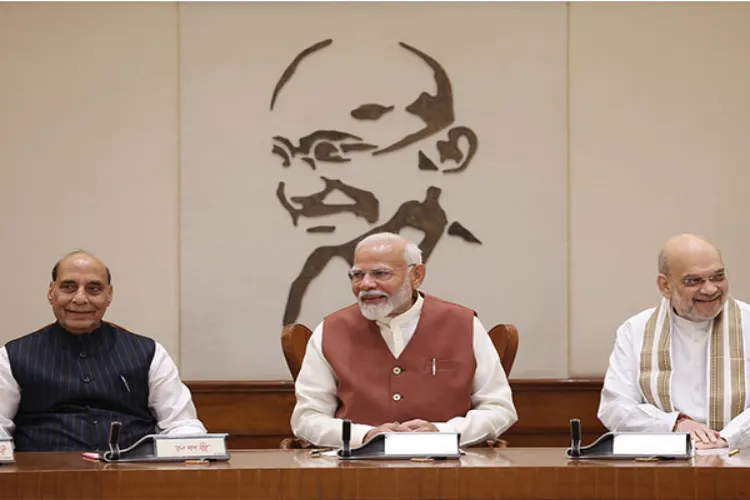
New Delhi
Unfazed by its reduced numbers in the 2024 Parliamentary elections, the Bhartiya Janata Party-led government will continue to work on the agenda that was promised in 2014, when Prime Minister Modi was first sworn in as PM, say top sources.
During its first two terms, the PM Narendra Modi-led government had delivered on its key promises, including construction of the Ram temple at Ayodhya, abolition of article 370 in JK and the implementation of the citizenship amendment Act, among others. The promise of One Nation-One Election, wherein state assembly polls is held along with parliamentary polls, is another big promise in the BJP's election manifesto.
Sources say the ruling NDA government is committed to hold simultaneous general and assembly elections. Sources also added that One Nation-One Election will become a reality in this term of the government itself and the BJP is hoping to muster support of other political parties as well.
Several opposition parties and chief ministers of opposition rule states have opposed the idea of One Nation-One Election.
Prime Minister Modi has been advocating reforms in the electoral process and holding of simultaneous general elections and assembly elections to save resources, reduce pressure on administrative machinery in conducting of elections around the year and save public money.
The High-Level Committee on 'One Nation-One Election' led by former President Ram Nath Kovind in its report stated that frequent elections create an atmosphere of uncertainty and impact policy decisions, adding that holding simultaneous elections would bring enhanced certainty in policy making. While highlighting the advantages of simultaneous elections, the committee stated that 'One Nation One Election' ensures ease and convenience to voters, avoids voters' fatigue, and facilitates greater voter turnout.
The Prime Minister, in his speech from the ramparts of the Red Fort on Independence Day, also advocated for having simultaneous assembly and parliamentary polls.
"Continuous elections in the country are causing headraces in development. Welfare schemes in the country are now linked to the elections. Every three to six months we have elections, every work in the country is now linked to elections. A wide range of discussions have already happened. Every political party has already expressed their views. A committee has already submitted the report on this. The nation must come forward for One Nation-One Election. I request all political parties from the Red Fort to come forward for One Nation-One Election," he had said.
Meanwhile, sources have also told ANI that administrative work to hold the long-delayed countrywide Census is underway; however, no decision has yet been taken on whether a caste index or column will be included in the Census exercise. Opposition parties like the Congress, RJD and SP have been vociferously demanding the conducting of the Caste Census. NDA alliance partner Lok Janashakthi Party chief Chirag Paswan is also in favour of a countrywide Caste Census.
READ MORE: Prophet Muhammad: A life of leadership and teaching
The last Census was conducted in 2011 and it is due since 2021. The Census is conducted every ten years, but Census 2021 was delayed due the COVID-19 pandemic and has been on hold since then. The Census provides key socio-economic and demographic data to policy makers and plays a crucial role in governance.
